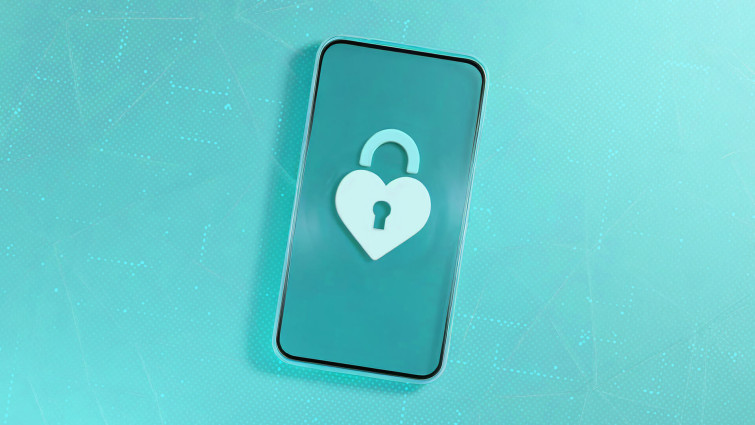Privateness
Given the unhealthy data-collection habits of some mHealth apps, you’re nicely suggested to tread fastidiously when selecting with whom you share a few of your most delicate knowledge
19 Mar 2024
•
,
5 min. learn

In in the present day’s digital financial system there’s an app for almost all the things. One space that’s booming greater than most is healthcare. From interval and fertility trackers to psychological well being and mindfulness, there are cell well being (mHealth) purposes out there to assist with nearly any situation. In actual fact, it’s a market already experiencing double-digit progress, and set to be price an estimated $861 billion by 2030.
However when utilizing these apps, you possibly can be sharing among the most delicate knowledge you possess. In actual fact, the GDPR classifies medical info as “particular class” knowledge, that means it may “create important dangers to the person’s elementary rights and freedoms” if disclosed. That’s why regulators mandate organizations present additional protections for it.
Sadly, not all app builders have the perfect pursuits of their customers in thoughts, or all the time know how one can shield them. They could skimp on knowledge safety measures, or they could not all the time make it clear as to how a lot of your private info they share with third events. With that in thoughts, let’s check out the primary privateness and safety dangers of utilizing these apps, and how one can keep protected.
What are the highest well being app privateness and safety dangers?
The principle dangers of utilizing mHealth apps fall into three classes: inadequate knowledge safety, extreme knowledge sharing, and poorly worded or intentionally evasive privateness insurance policies.
1. Knowledge safety issues
These typically stem from builders failing to comply with finest apply guidelines on cybersecurity. They might embody:
- Apps which might be not supported or don’t obtain updates: Distributors might not have a vulnerability disclosure/administration program in place, or take little curiosity in updating their merchandise. Regardless of the cause, if software program doesn’t obtain updates, it means it might be riddled with vulnerabilities which attackers can exploit to steal your knowledge.
- Insecure protocols: Apps that use insecure communications protocols might expose customers to the chance of hackers intercepting their knowledge in transit from the app to the supplier’s back-end or cloud servers, the place it’s processed.
- No multi-factor authentication (MFA): Most respected providers in the present day supply MFA as a technique to bolster safety on the log-in stage. With out it, hackers may acquire your password through phishing or a separate breach (when you reuse passwords throughout totally different apps) and log in as in the event that they have been you.
- Poor password administration: For instance, apps that enable customers to maintain manufacturing facility default passwords, or set insecure credentials comparable to “passw0rd” or “111111.” This leaves the consumer uncovered to credential stuffing and different brute power makes an attempt to crack their accounts.
- Enterprise safety: App firms might also have restricted safety controls and processes in place in their very own knowledge storage setting. This might embody poor consumer consciousness coaching, restricted anti-malware and endpoint/community detection, no knowledge encryption, restricted entry controls, and no vulnerability administration or incident response processes in place. These all improve the probabilities they might undergo an information breach.
2. Extreme knowledge sharing
Customers’ well being info (PHI) might embody extremely delicate particulars about sexually transmitted ailments, substance addition or different stigmatised circumstances. These could also be offered or shared to 3rd events, together with advertisers for advertising and marketing and focused adverts. Among the many examples noted by Mozilla are mHealth suppliers that:
- mix info on customers with knowledge purchased from knowledge brokers, social media websites and different suppliers to construct extra full id profiles,
- don’t enable customers to request deletion of particular knowledge,
- use inferences made about customers after they take sign-up questionnaires which ask revealing questions on sexual orientation, melancholy, gender id and extra,
- enable third-party session cookies which determine and monitor customers throughout different web sites to serve related adverts,
- enable session recording, which screens consumer mouse actions, scrolling and typing.
3. Unclear privateness insurance policies
Some mHealth suppliers will not be upfront about among the above privateness practices, utilizing obscure language or hiding their actions within the small print of T&Cs. This can provide customers a false sense of safety/privateness.

What the regulation says
- GDPR: Europe’s flagship knowledge safety regulation is fairly unequivocal about organizations dealing with particular class PHI. Builders have to conduct privateness influence assessments, comply with the proper to erasure and knowledge minimization rules, and take “acceptable technical measures” to make sure “the required safeguards” are baked-in, to guard private knowledge.
- HIPAA: mHealth apps supplied by industrial distributors to be used by people will not be coated by HIPAA, as a result of distributors will not be a “covered entity” or “business associate.” Nonetheless, some are – and require the suitable administrative, bodily and technical safeguards in place, in addition to an annual Risk Analysis.
- CCPA and CMIA: Californian residents have two items of laws defending their safety and privateness in an mHealth context: the Confidentiality of Medical Info Act (CMIA) and the California Shopper Privateness Act (CCPA). These demand a excessive customary of knowledge safety and specific consent. Nonetheless, they solely apply to Californians.
Taking steps to guard your privateness
Everybody can have a distinct danger urge for food. Some will discover the commerce off between personalised providers/promoting and privateness one they’re prepared to make. Others might not bothered if some medical knowledge is breached or offered to 3rd events. It’s about discovering the proper stability. If you’re involved, take into account the next:
- Do your analysis earlier than downloading. See what different customers say and if there are any purple flags from trusted reviewers
- Restrict what you share through these apps and assume something you say could also be shared
- Don’t join the app to your social media accounts or use them to check in. This may restrict what knowledge could be shared with these firms
- Don’t give the apps permission to entry your machine digital camera, location, and so on.
- Restrict advert monitoring in your telephone’s privateness settings
- All the time use MFA the place supplied and create sturdy, distinctive passwords
- Hold the app on the most recent (most safe) model
Since Roe vs Wade was overturned, the controversy over mHealth privateness has taken a worrying flip. Some have raised the alarm that knowledge from interval trackers may very well be utilized in prosecutions in opposition to ladies in search of to terminate their pregnancies. For a rising variety of individuals on the lookout for privacy-respecting mHealth apps, the stakes couldn’t be increased.




